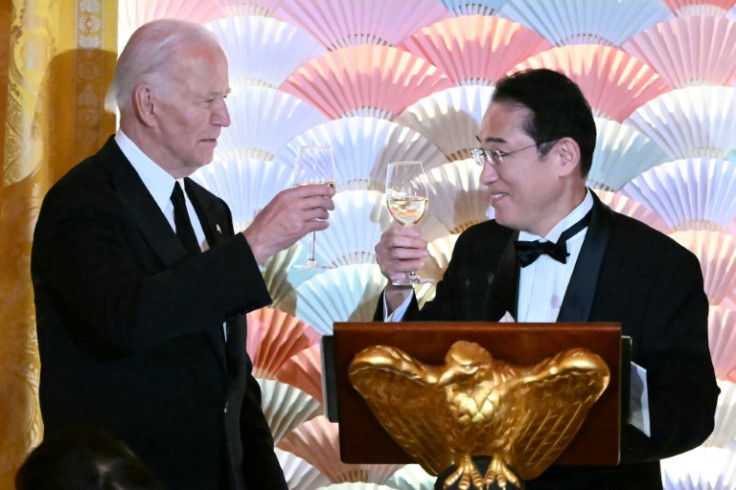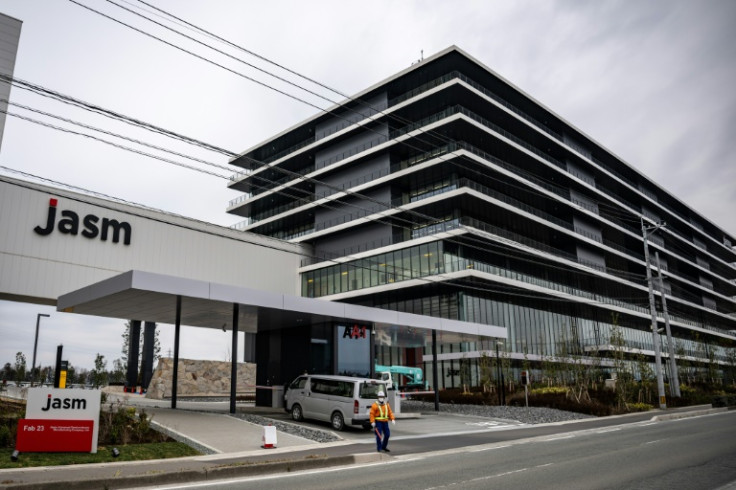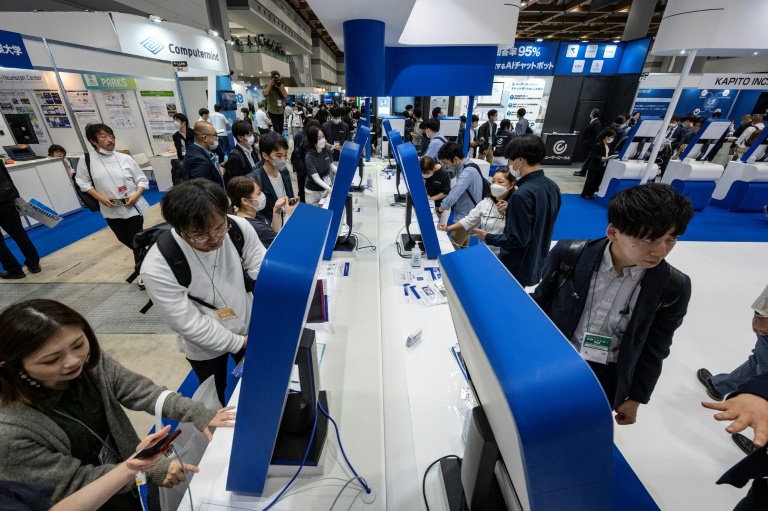Massive overseas and domestic investments offer Japan a chance to reclaim its tech crown, but to become a convincing alternative to China the country must embrace rapid innovation, experts say.
US tech giants are pumping billions of dollars into artificial intelligence, cybersecurity and chip production in Japan, which dominated the hardware industry in the 1980s.
Google launched a regional cyber defence hub in the country last month, and Amazon Web Services is spending $14 billion to expand Japanese cloud infrastructure.
And in the latest move, this week saw Microsoft, a partner of ChatGPT-maker OpenAI, pledge $2.9 billion to boost the nation’s AI prowess.
“Geopolitical tensions have made Japan a more attractive and stable partner compared to China,” said Khos-Erdene Baatarkhuu, CEO of fintech company AND Global.
“Japan’s tech sector, once a leader, lost ground due to a slower response to digital and mobile trends” compared with neighbours such as South Korea, he told AFP.
But “now, with supportive government policies, resilient start-ups, and a potentially shifting global tech scene, Japan has an opportunity to regain its tech edge”.
It’s not there yet, however. Japan was ranked a lowly 32nd in the latest global classification of digital competitiveness by Swiss management school IMD.
And only seven Japanese firms appear among more than 1,200 tech “unicorns” — start-ups worth more than $1 billion — listed by CB Insights.
A “perfection-seeking approach” and preference for “stability and gradual improvement” among businesses is partly to blame, Khos-Erdene said.
“The traditional corporate culture in Japan tends to be risk-averse and hierarchical, which can stifle the rapid innovation typically seen in the software industry.”
Masayoshi Son, CEO of Japanese tech investment vehicle SoftBank Group, has warned the country could be left a gawping “goldfish” if it ignores AI.
“Wake up Japan!” he said at a corporate event in October. “I want to be on the side of evolution.”
Son and tech titans including Apple boss Tim Cook and Amazon founder Jeff Bezos joined Japan’s Prime Minister Fumio Kishida and US President Joe Biden at a Washington dinner on Wednesday.
At a summit that day, Kishida and Biden had vowed to strengthen “our shared role as global leaders in the development and protection of next-generation critical and emerging technologies”.
They also agreed to work with “like-minded countries to strengthen global semiconductor supply chains” in a joint statement.
Semiconductors, which power everything from mobile phones to cars, have become a key battleground in recent years.
The United States and some European countries have blocked exports of high-tech chip technology to China over fears of military use.
Meanwhile, Taiwanese chip behemoth TSMC is facing pressure to diversify its production from customers and governments worried about the possibility of China invading Taiwan.
TSMC opened a new $8.6 billion chip factory in southern Japan in February, and is planning a second, $20-billion facility for more advanced chips.
On a visit to the TSMC plant this month, Kishida said he “felt first-hand the revival of our country’s semiconductor industry”.
Japan has spent 3.9 trillion yen ($25 billion) in the past three years on chip-related subsidies — a larger portion of gross domestic product than the United States or Germany.
Japanese firms including Sony and Toyota are also collaborating with US giant IBM on a semiconductor project called Rapidus, aiming to mass-produce two-nanometre logic chips in Japan from 2027.
“This is a great time to invest in Japan” with the yen’s value at a 34-year low, said Hideaki Yokota, vice president of the specialist IT think-tank MM Research Institute.
Tech firms hope the country can become their “best partner in Asia” while its workforce boasts many highly educated engineers ready to be snapped up, he told AFP.
Established Japanese businesses, especially in the auto and household appliance sectors, provide real-world opportunities to make AI profitable, he said.
But Khos-Erdene warned that Japan should not rely on its legacy as a manufacturer, given its low labour productivity and shrinking workforce.
“As CEO of a tech company, I see Japan at a crossroads,” he said, with the question not if but how quickly the country can become a “producer, not just a consumer, of these transformative technologies”.
Microsoft plans to offer AI training to three million of Japan’s population of 125 million.
Japanese and American universities are also teaming up on new technology research programmes funded by global companies such as Nvidia and Arm.
“Overall, Japan’s commitment to AI holds tremendous potential for economic revitalisation,” Khos-Erdene said.
“By fostering collaboration, retaining top talent, and learning from successful models like the US and China, Japan can bridge the AI gap and re-establish itself as a major force in the global tech landscape.”
AFP

AFP

AFP







